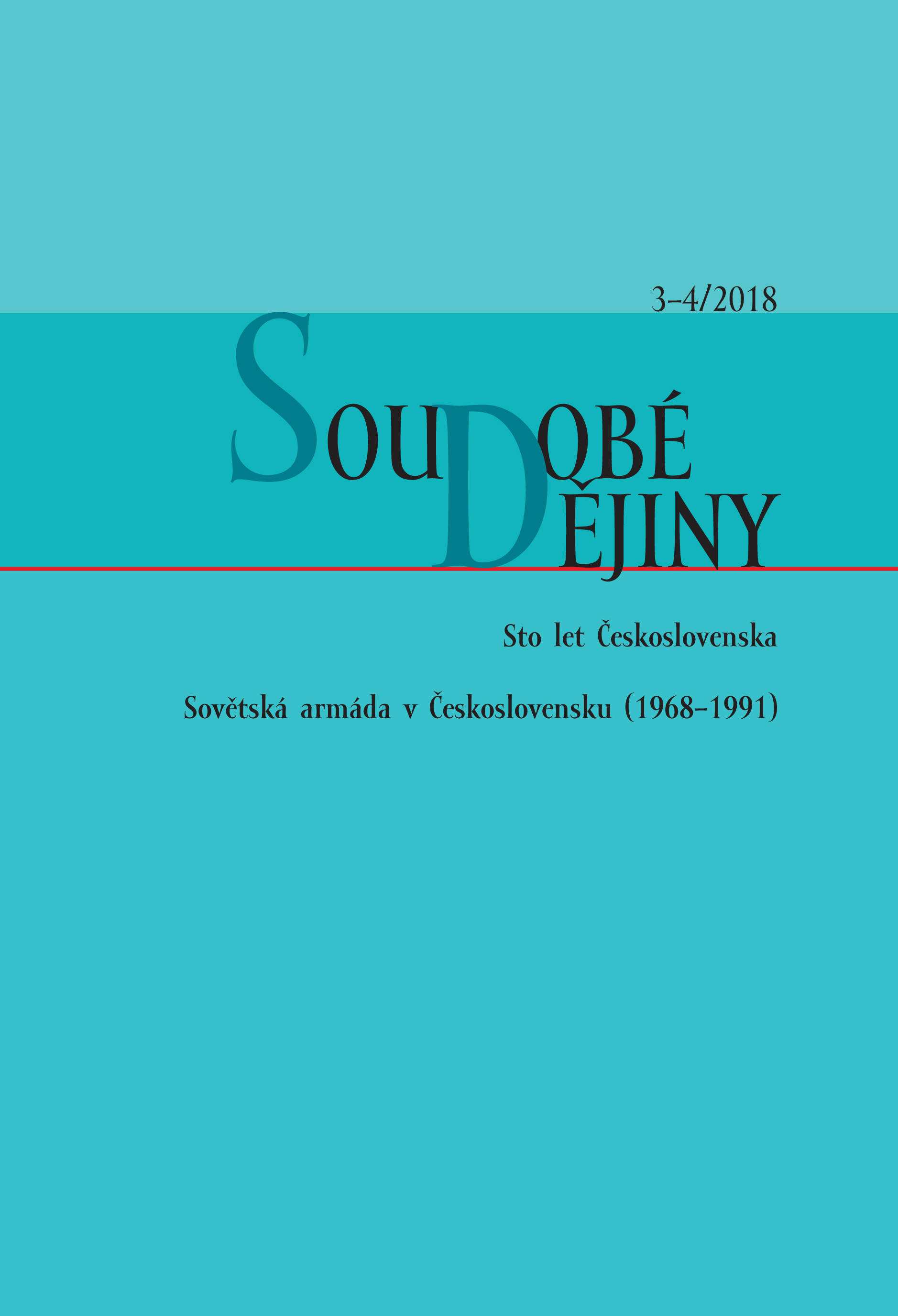Jozef Tiso – patriot či zradca?
Jozef Tiso – a patriot, or a traitor?
Seventy years of the Slovak discussion
Author(s): Milan ZemkoContributor(s): Lucia Faltinová (Translator)
Subject(s): History, Recent History (1900 till today), WW II and following years (1940 - 1949)
Published by: AV ČR - Akademie věd České republiky - Ústav pro soudobé dějiny
Keywords: Jozef Tiso;Slovakia;historical images;public opinion;
Summary/Abstract: The author follows changes of the historical perception of Jozef Tiso (1887–1947), a politician and a Roman Catholic priest, in the Slovak society and historiography. He notes that Tiso belonged to conservative politicians and moderate supporters of Slovakia’s autonomy in the pre-war Czechoslovak Republic. As the president of the Slovak Republic during WW2, he enjoyed sympathies of a large part of the Slovak society, the circumstances notwithstanding. Analyzing the criticism voiced by the Czechoslovak radio broadcasts from the London exile or appearing in the press published in the liberated territory during the Slovak National Uprising, the author concludes that it was focused much more on the regime of Hlinka’s Slovak People’s Party than against Tiso himself. The above also holds partly true to accusations in the Slovak press between the end of the war and the start of Tiso’s trial by the National Court of Justice. It is true that the court’s sentence and Tiso’s execution were not accompanied by any public protests, but most of the Slovak society did not accept them. The author also describes efforts aimed at Tiso’s rehabilitation among Slovak exile historiographers, focusing in detail on the apologetic arguments of exile historian Milan Stanislav Ďurica in Tiso’s political biography that was published in Slovakia in 2006 and has hitherto been the most comprehensive work on Tiso. In the end, the author presents results of public opinion polls which have taken place in Slovakia since 1989 and which were focused on the evaluation of different periods and personalities of the Slovak history. They show that the anti-fascist Slovak National Uprising is viewed positively by a substantially larger part of the Slovak population than the regime of Hlinka’s Slovak People’s Party and that the number of Tiso’s opponents is significantly higher than that of Tiso’s sympathizers. It is interesting to note, however, that a positive attitude toward the uprising is not in contradiction with sympathies toward the regime of Hlinka’s Slovak People’s Party for some respondents.
Journal: Soudobé Dějiny
- Issue Year: XXV/2018
- Issue No: 3+4
- Page Range: 366-376
- Page Count: 11
- Language: Slovak

